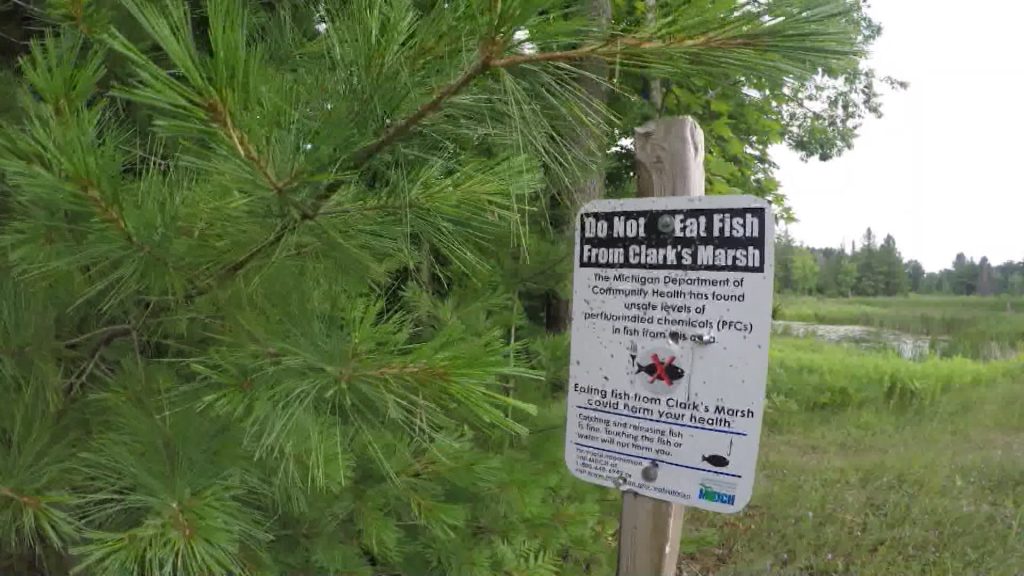Health officials examine possible PFAS contamination in wildlife

ALPENA, Mich. – Members of Michigan’s environmental and health groups joined forces to gain greater insight on the PFAS contamination problem. PFAS is a manufactured toxin that was used in firefighting foam during the 1940s that has since harmed many communities.
Here’s the latest on this growing issue in Iosco County.
Earlier this summer, Northeast Michigan Representative Sue Allor looked at PFAS in Van Etten Lake. Toxic plumes have been traveling underground and infiltrating the well water system in Oscoda Township. Now state officials returned on Wednesday to look at the contamination problem in wildlife and the environment.
Fish tend to attach themselves to the PFOS. They may swim in water with multiple chemicals in the PFAS family, but it’s the PFOS that builds up in the fish that you eat.
“In July of this year, we received new data that did not change, but new data for large mouth and small mouth bass,” said Jennifer Gray, a toxicologist for the Michigan Department of Health and Human Services. “We kept those at do not eat due to PFAS in the Au Sable River, downstream of the foot dam.”
Michigan’s political, health, and environmental leaders gathered near Van Etten Lake to understand contamination levels in the fish. They found issues with toxins at various sites.
An aquatic biologist, Joe Bohr, from the Department on Environmental Quality said, “There are consumption advisories, some of it is due in part to PFAS, but it’s largely due to mercury actually in Van Etten Lake specifically.
Fish guidelines are posted online annually, but the issue of PFAS goes beyond the shoreline. Land animals came into question.
The Department of Natural Resources is currently sampling the deer population to determine if there are any levels of PFAS that would potentially pose a risk to human health.
“What we did was we took four sites throughout the state and we need at least 20 deer from these locations where the deer could have come in contact with surface water that was contaminated,” said Tammy Newcomb, sr. water policy advisor with the DNR.
Those places were Gaylord, Alpena, Oscoda, and spots north of Kent County.
Scientists are still researching possible wildlife contamination, but residents are told not be alarmed.
Michigan is the only state in the country that has a formal procedure for testing PFAS contaminated sites.
Families can contact the MDEQ hotline number to report any of the PFAS foam surfacing on their property. The number is 1-800-292-4706.






